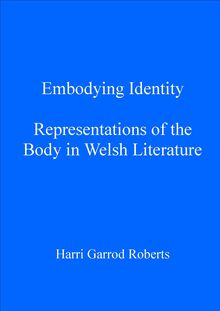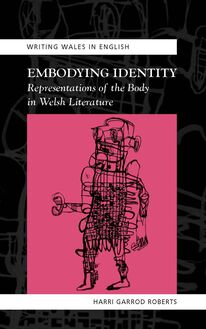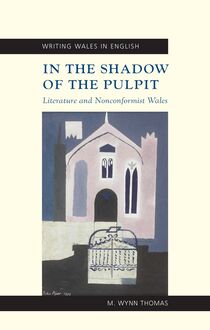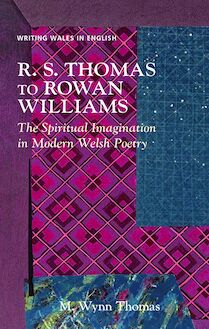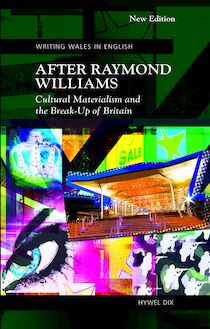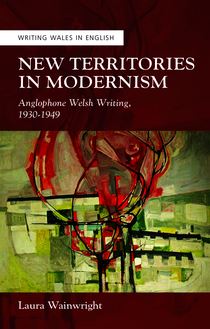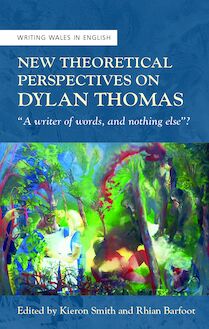-
 Univers
Univers
-
 Ebooks
Ebooks
-
 Livres audio
Livres audio
-
 Presse
Presse
-
 Podcasts
Podcasts
-
 BD
BD
-
 Documents
Documents
-
- Cours
- Révisions
- Ressources pédagogiques
- Sciences de l’éducation
- Manuels scolaires
- Langues
- Travaux de classe
- Annales de BEP
- Etudes supérieures
- Maternelle et primaire
- Fiches de lecture
- Orientation scolaire
- Méthodologie
- Corrigés de devoir
- Annales d’examens et concours
- Annales du bac
- Annales du brevet
- Rapports de stage
La lecture à portée de main
Découvre YouScribe en t'inscrivant gratuitement
Je m'inscrisDécouvre YouScribe en t'inscrivant gratuitement
Je m'inscrisEn savoir plus
En savoir plus

Description
Certain simple and stereotypical images of Wales strike an immediate chord with the public, both in Wales itself and beyond its borders. For much of the twentieth century, the country was thought of as ‘The Valleys’, a land of miners and choirs and rugby clubs. This image of a ‘Proletarian Wales’ (with its attendant Socialist politics) dominated popular imagination, just as the image of ‘Nonconformist Wales’ – a Wales of chapels and of a grimly puritan society – had gripped the imagination of the High Victorian era. But what of the Wales of the late Victorian and Edwardian decades? What image of Wales prevailed at that time of revolutionary social, economic, cultural, religious and political change? This book argues that several competing images of Welshness were put in circulation during that time, and proceeds to examine several of the most influential of these as they took the form of literary texts.
1 Emblematizing the nation
2 Performing political identity
3 O.M. Edwards: keeping track of the gwerin
4 Literature and the political nation
5 The Celtic
6 T. Gwynn Jones: the once and future Wales
7 Evan Roberts: The Ghost Dance of Welsh Nonconformity
8 Arthur Machen: border disputes
Sujets
Informations
| Publié par | University of Wales Press |
| Date de parution | 20 mai 2016 |
| Nombre de lectures | 0 |
| EAN13 | 9781783168392 |
| Langue | English |
| Poids de l'ouvrage | 6 Mo |
Informations légales : prix de location à la page 0,0500€. Cette information est donnée uniquement à titre indicatif conformément à la législation en vigueur.
Extrait
This page is intentionallly left blank
002 NOTES NATIONS 2016_3_24.indd 324 3/24/2016 5:43:27 PMe
The Nations of Wales
Writing Wales in nglish
000 PRELIMS NATIONS 2016_3_24.indd 1 4/6/2016 1:13:40 PMCREW series of Critical and Scholarly Studies
General Editors: Kirsti Bohata and Daniel G. Williams (CREW, Swansea
University)
This CREW series is dedicated to Emyr Humphreys, a major fgure in the
literary culture of modern Wales, a founding patron of the Centre for Research
into the English Literature and Language of Wales. Grateful thanks are due
to the late Richard Dynevor for making this series possible.
Other titles in the series
Stephen Knight, A Hundred Years of Fiction (978-0-7083-1846-1)
Barbara Prys-Williams, Twentieth-Century Autobiography (978-0-7083-1891-1)
Kirsti Bohata, Postcolonialism Revisited (978-0-7083-1892-8)
Chris Wigginton, Modernism from the Margins (978-0-7083-1927-7)
Linden Peach, Contemporary Irish and Welsh Women’s Fiction (978-0-7083-1998-7)
Sarah Prescott, Eighteenth-Century Writing from Wales: Bards and Britons
(978-0-7083-2053-2)
Hywel Dix, After Raymond Williams: Cultural Materialism and the Break-Up of Britain
(978-0-7083-2153-9)
Matthew Jarvis, Welsh Environments in Contemporary Welsh Poetry (978-0-7083-2152-2)
Harri Garrod Roberts, Embodying Identity: Representations of the Body in Welsh
Literature (978-0-7083-2169-0)
Diane Green, Emyr Humphreys: A Postcolonial Novelist (978-0-7083-2217-8)
M. Wynn Thomas, In the Shadow of the Pulpit: Literature and Nonconformist Wales
(978-0-7083-2225-3)
Linden Peach, The Fiction of Emyr Humphreys: Contemporary Critical Perspectives
(978-0-7083-2216-1)
Daniel Westover, R. S. Thomas: A Stylistic Biography (978-0-7083-2413-4)
Jasmine Donahaye, Whose People? Wales, Israel, Palestine (978-0-7083-2483-7)
Judy Kendall, Edward Thomas: The Origins of His Poetry (978-0-7083-2403-5)
Damian Walford Davies, Cartographies of Culture: New Geographies of Welsh Writing in
English (978-0-7083-2476-9)
Daniel G. Williams, Black Skin, Blue Books: African Americans and Wales 1845–1945
(978-0-7083-1987-1)
Andrew Webb, Edward Thomas and World Literary Studies: Wales, Anglocentrism and English
Literature (978-0-7083-2622-0)
Alyce von Rothkirch, J. O. Francis, realist drama and ethics: Culture, place and nation
(978-1-7831-6070-9)
Rhian Barfoot, Liberating Dylan Thomas: Rescuing a Poet from Psycho-Sexual Servitude
(978-1-7831-6184-3)
Daniel G. Williams, Wales Unchained: Literature, Politics and Identity in the American Century
(978-1-7831-6212-3)
000 PRELIMS NATIONS 2016_3_24.indd 2 4/6/2016 1:13:40 PMe
The Nations of Wales
1890–1914
Writing Wales in nglish
m. WyNN Thomas
UNIVERsITy oF WaLEs PREss
2016
000 PRELIMS NATIONS 2016_3_24.indd 3 4/6/2016 1:13:40 PM© M. Wynn Thomas, 2016
All rights reserved. No part of this book may be reproduced in any
material form (including photocopying or storing it in any medium
by electronic means and whether or not transiently or incidentally to
some other use of this publication) without the written permission
of the copyright owner. Applications for the copyright owner’s
written permission to reproduce any part of this publication should
be addressed to the University of Wales Press, 10 Columbus Walk,
Brigantine Place, Cardiff CF10 4UP.
www.uwp.co.uk
British Library CIP Data
A catalogue record for this book is available from the British Library
ISBN 978-1-78316-837-8 (hardback)
978-1-78316-838-5 (paperback)
978-1-78316-839-2eISBN
The right of M. Wynn Thomas to be identifed as author of this
work has been asserted in accordance with sections 77 and 79 of
the Copyright, Designs and Patents Act 1988.
Printed by CPI Antony Rowe, Chippenham,
Wiltshire
Typeset in Wales by Eira Fenn Gaunt, Cardiff
Printed by CPI Antony Rowe, Chippenham, Wiltshire
000 PRELIMS NATIONS 2016_3_24.indd 4 4/6/2016 1:13:40 PM
I’r dyfodol —
Joseph ac Elliott —
er cof am ran o’u gorffennol
000 PRELIMS NATIONS 2016_3_24.indd 5 4/6/2016 1:13:40 PMThis page is intentionallly left blank
000 PRELIMS NATIONS 2016_3_24.indd 6 4/6/2016 1:13:40 PM
Contents
Series Editors’ Preface ix
Preface xiii
1 Emblematising the nation 1
2 Performing political identity 37
3 O. M. Edwards: Keeping track of the gwerin 75
4 Literature and the political nation 110
5 The Celtic option 145
6 T. Gwynn Jones: The once and future Wales 185
7 Evan Roberts: The ghost dance of Welsh
Nonconformity 214
8 Arthur Machen: Border disputes 257
Notes 289
Index 313
000 PRELIMS NATIONS 2016_3_24.indd 7 4/6/2016 1:13:41 PMThis page is intentionallly left blank
000 PRELIMS NATIONS 2016_3_24.indd 8 4/6/2016 1:13:41 PM
Series Editors’ Preface
The aim of this series, since its founding in 2004 by Professor M. Wynn
Thomas, is to publish scholarly and critical work by established
specialists and younger scholars that refects the richness and variety
of the English-language literature of modern Wales. The studies
published so far have amply demonstrated that concepts, models and
discourses current in the best contemporary studies can illuminate
aspects of Welsh culture, and have also foregrounded the potential
of the Welsh example to draw attention to themes that are often
neglected or marginalised in anglophone cultural studies. The series
defnes and explores that which distinguishes Wales’s anglophone
literature, challenges critics to develop methods and approaches
adequate to the task of interpreting Welsh culture, and invites its
readers to locate the process of writing Wales in English within
comparative and transnational contexts.
Kirsti Bohata and Daniel G. Williams
CREW (Centre for Research into the English
Literature and Language of Wales)
Swansea University
000 PRELIMS NATIONS 2016_3_24.indd 9 4/6/2016 1:13:41 PMThis page is intentionallly left blank
000 PRELIMS NATIONS 2016_3_24.indd 10 4/6/2016 1:13:41 PMIn a press interview at the Savoy Hotel, London, on July 15, Marilyn
Monroe, dubbed ‘the anatomical bomb,’ was asked whether she
would visit Wales. She replied, ‘Where is Wales?’
The Welsh Nation, July, 1956
[CYMRU]
Byw brwydr bob awr ydyw
brwydr fawr ein bryd ar fyw.
Gerallt Lloyd Owen, ‘Cywydd Croeso’, Y Gân Olaf
000 PRELIMS NATIONS 2016_3_24.indd 11 4/6/2016 1:13:41 PMThis page is intentionallly left blank
000 PRELIMS NATIONS 2016_3_24.indd 12 4/6/2016 1:13:41 PMPreface
History never repeats itself, that we know; but it can seem uncannily
fond of rhyme. The resemblances between the Wales of today and that
of yesterday with which this volume is concerned can seem striking.
The decay of the chapels and attendant fade of Nonconformity
(examined in my previous volume In the Shadow of the Pulpit: Literature
and Nonconformist Wales) left a kind of identity vacuum in late
Victorian and Edwardian Wales that intellectuals and artists rushed
to fll, and the terminal collapse of the industrial society that for much
of the twentieth century had sustained an image of Wales as a
proletarian socialist nation has triggered a similar reaction. Despite all
public rhetoric and political initiatives, the question of whether Wales
can evolve into a really stable, mature, bilingual and bicultural society
remains extremely moot, as it was when T. Gwynn Jones refected on
the issue in a great anguished and conficted ‘national’ elegy (examined
in chapter 6). What Lloyd George at the turn of the century despairingly
termed Wales’s ‘morbid rugby footballism’, the product of a frst
‘golden age’ of spectacular victories, paved the way for today’s barren
‘cenedlaetholdeb y bêl’ (rugby ball nationalism). Back in the 1890s,
it was the turbulent Irish who were setting the political pace, while
the cowed and anxiously respectable Welsh, complacently anti-Catholic
and averse not just to violence but to serious political agitation of any
kind, tut-tutted from the wings while hoping to beneft from the
fallout. Now, at the beginning of the twenty-frst century, the Scots are
the troublesome trend-setters, and once more Wales demurely sits out
the dispute, deploring such unmannerly behaviour but ready to feed
off whatever scraps may fall its way. As J. Arthur Price suggested in
000 PRELIMS NATIONS 2016_3_24.indd 13 4/6/2016 1:13:41 PMxiv PREFACE
1890, just as Wales was England’s very frst dependency, it seems set
fair to be its very last. Particularly during the rugby season, there even
continues to be vague talk in popular discourse of Wales as a Celtic
nation, as there was back in the 1890s; and the Welsh have at long
last, with whatever seeming reluctance, secured those minimal powers
of self-government dreamt of by several leading politicians and thinkers
exactly a century earlier than the narrow devolution vote of 1997.
This book is no more than an attempt to explore a few of the images
of Welsh identity that were placed in circulation by intellectuals and
artists during a fascinating period of roughly a quarter of a century.
There is no attempt to be exhaustive – two important features of these
years are particularly notable by their absence. The frst is the increasing
role of women; the second is the gradual emergence, in embryonic
form, of the image of the Welsh working class in the fgure of the
miner. Fortunately, both of these cultural formations characteristic
of the period have already been effectively studied elsewhere – by such
critics as Jane Aaron in the case of the former, and by such scholars
as Stephen Knight and Hywel Teif Edwards in the case of the latter.
As for the dates bracketing this particular study, the year 1890 has
been chosen to symbolise, rather than precisely to mark, the emergence
of the Cymru Fydd movement for national regeneration (discussed
at length in chapter 1) that left a profound mark on Wales’s cultural
life if not so much on its political destiny. And 1914 obvio
-
 Univers
Univers
-
 Ebooks
Ebooks
-
 Livres audio
Livres audio
-
 Presse
Presse
-
 Podcasts
Podcasts
-
 BD
BD
-
 Documents
Documents
-
Jeunesse
-
Littérature
-
Ressources professionnelles
-
Santé et bien-être
-
Savoirs
-
Education
-
Loisirs et hobbies
-
Art, musique et cinéma
-
Actualité et débat de société
-
Jeunesse
-
Littérature
-
Ressources professionnelles
-
Santé et bien-être
-
Savoirs
-
Education
-
Loisirs et hobbies
-
Art, musique et cinéma
-
Actualité et débat de société
-
Actualités
-
Lifestyle
-
Presse jeunesse
-
Presse professionnelle
-
Pratique
-
Presse sportive
-
Presse internationale
-
Culture & Médias
-
Action et Aventures
-
Science-fiction et Fantasy
-
Société
-
Jeunesse
-
Littérature
-
Ressources professionnelles
-
Santé et bien-être
-
Savoirs
-
Education
-
Loisirs et hobbies
-
Art, musique et cinéma
-
Actualité et débat de société
- Cours
- Révisions
- Ressources pédagogiques
- Sciences de l’éducation
- Manuels scolaires
- Langues
- Travaux de classe
- Annales de BEP
- Etudes supérieures
- Maternelle et primaire
- Fiches de lecture
- Orientation scolaire
- Méthodologie
- Corrigés de devoir
- Annales d’examens et concours
- Annales du bac
- Annales du brevet
- Rapports de stage
